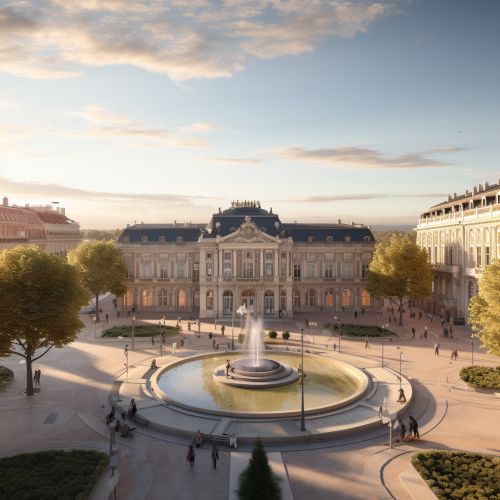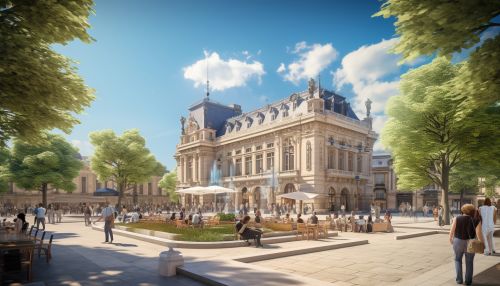Nancy, France
Geography
Nancy is located in the northeastern part of France, in the Grand Est region. It is situated on the left bank of the river Meurthe, about 10 kilometers upstream from where the river flows into the Moselle. The city is surrounded by hills and plateaus, including the Cotentin Peninsula to the north and the Vosges Mountains to the south. It is approximately 281 kilometers east of Paris, and about 116 kilometers west of Strasbourg. The city's elevation ranges from 200 to 330 meters above sea level.

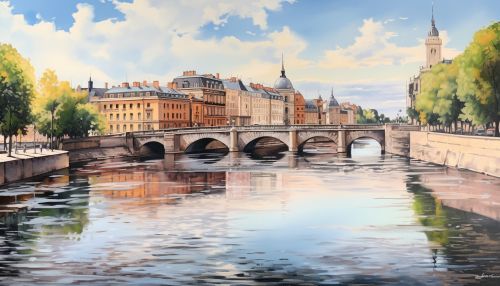
History
Nancy has a rich and complex history that dates back to the early Middle Ages. It was originally a small fortified settlement named Nanciacum, which was established by Duke Gerard of Lorraine in the 11th century. The city grew in importance during the Middle Ages, becoming a major center of commerce and culture in the region. In the 15th century, it became the capital of the Duchy of Lorraine, and remained so until the duchy was annexed by France in 1766. During this period, Nancy was a hub of artistic and intellectual activity, and many grand buildings and monuments were constructed, including the famous Place Stanislas.
In the 19th and 20th centuries, Nancy underwent significant industrialization, becoming a major center for the production of iron and steel. The city was heavily damaged during both World Wars, but was largely rebuilt in the post-war period. Today, Nancy is known for its rich architectural heritage, its vibrant cultural scene, and its important role in the regional economy.
Architecture
Nancy is renowned for its impressive architectural heritage, which spans several centuries and a variety of styles. The city's architectural landscape is dominated by the grand Place Stanislas, a large square that was built in the 18th century by Stanislas Leszczyński, the Duke of Lorraine. The square, which is considered one of the finest examples of 18th-century urban design, is surrounded by a number of elegant buildings in the Baroque style, including the City Hall, the Opera House, and the Museum of Fine Arts.
In addition to its Baroque architecture, Nancy is also known for its Art Nouveau buildings, many of which were designed by the architect Emile André. These include the Villa Majorelle, the Brasserie Excelsior, and the Ecole de Nancy, which is now a museum dedicated to the Art Nouveau movement.
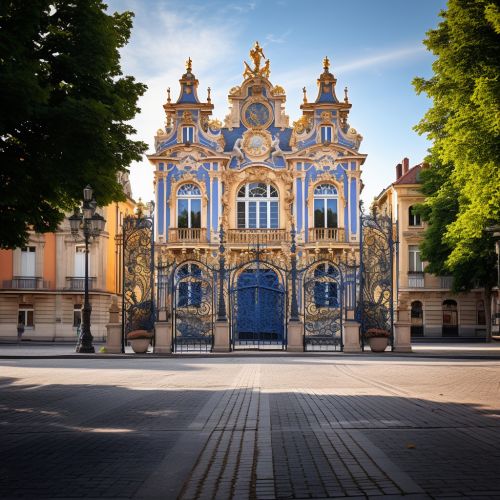
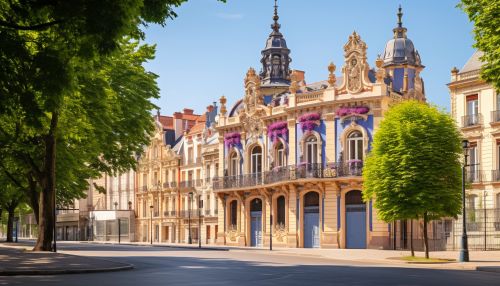
Economy
Nancy's economy is diverse and dynamic, with a strong focus on knowledge and innovation. The city is home to several major companies, including Saint-Gobain, a multinational corporation specializing in the production of construction and high-performance materials, and Klepierre, a leading European real estate company. Nancy also has a thriving small business sector, with a high concentration of startups and small and medium-sized enterprises.
One of the key drivers of Nancy's economy is its strong research and development sector. The city is home to the University of Lorraine, one of the largest universities in France, which has a strong focus on science and technology. The university is a major player in the city's economy, employing thousands of people and attracting students from around the world.
Nancy is also a major regional transport hub, with excellent road, rail, and air connections. The city's location at the heart of Europe, close to the borders with Belgium, Germany, and Luxembourg, makes it an attractive location for businesses seeking to access the European market.
Culture
Nancy has a vibrant cultural scene, with a wide range of museums, galleries, theaters, and music venues. The city is particularly known for its rich artistic heritage, which is reflected in its many museums. These include the Museum of Fine Arts, which houses a large collection of European art from the Middle Ages to the present day, and the Museum of the School of Nancy, which is dedicated to the Art Nouveau movement.
The city also has a strong tradition of music and performing arts. The Opera National de Lorraine, located in the Place Stanislas, is one of the leading opera houses in France, and the city also hosts a number of music festivals throughout the year, including the Nancy Jazz Pulsations festival.
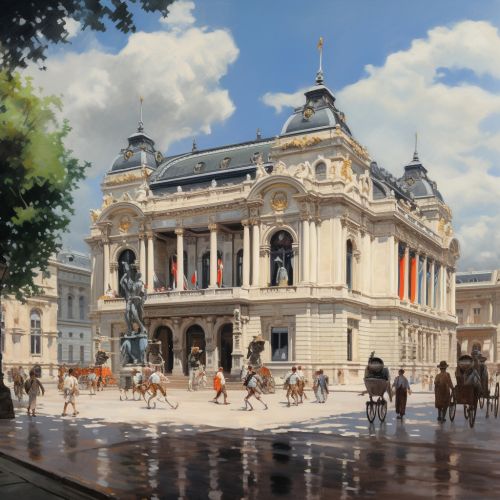
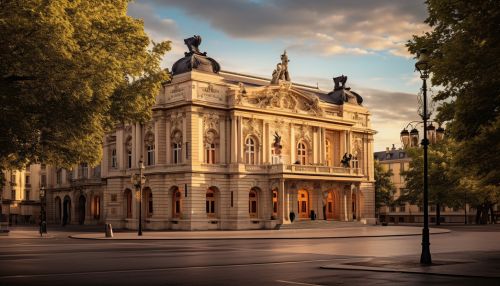
Education
Nancy is a major center of education and research in northeastern France. The city is home to the University of Lorraine, which is one of the largest universities in France, with more than 50,000 students. The university offers a wide range of programs in fields such as science, technology, engineering, and mathematics (STEM), humanities, social sciences, and health and medical sciences.
In addition to the University of Lorraine, Nancy is also home to several other higher education institutions, including the National School of Architecture, the National School of Art and Design, and the Nancy School of Management. The city also has a number of research institutions, including the Lorraine Research Laboratory in Computer Science and its Applications and the Lorraine Institute of Human Movement Sciences.
